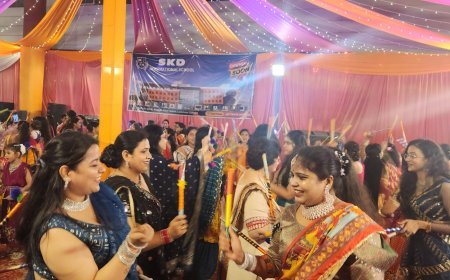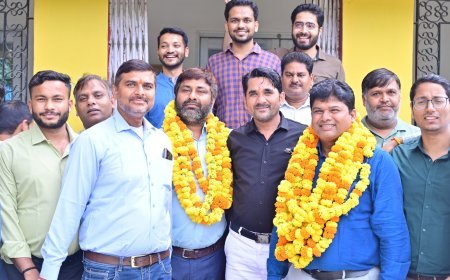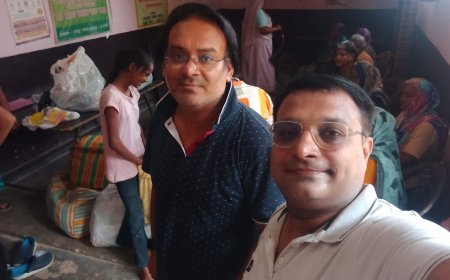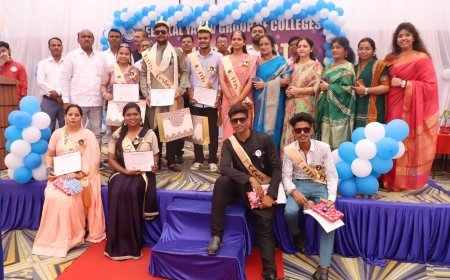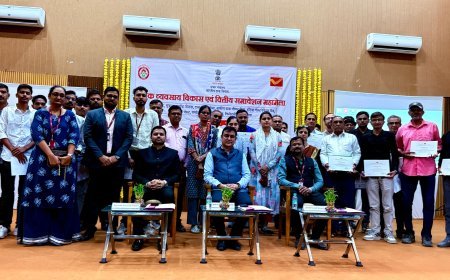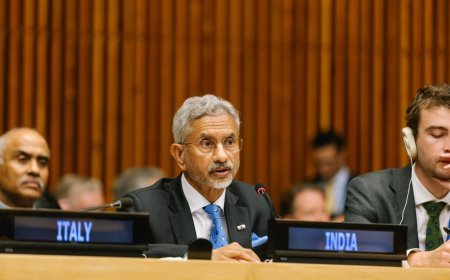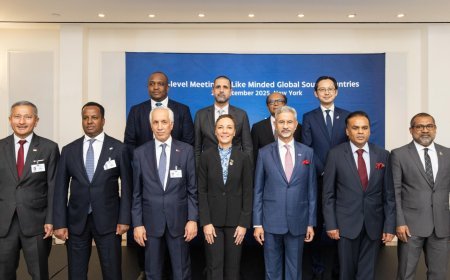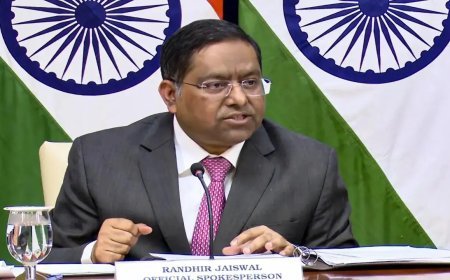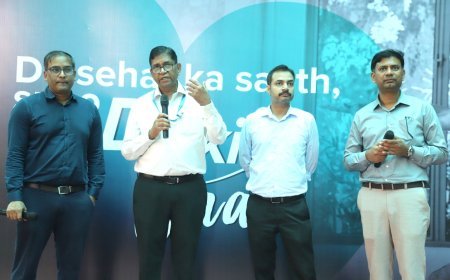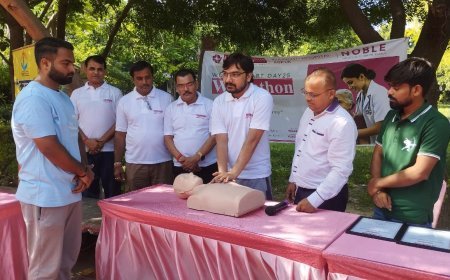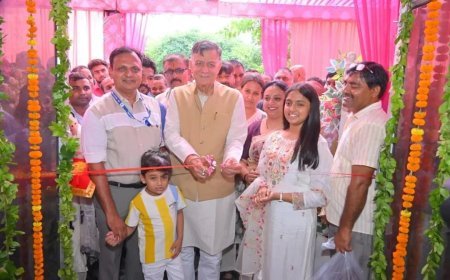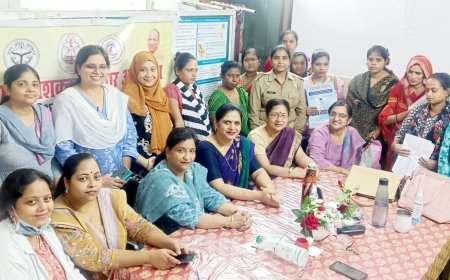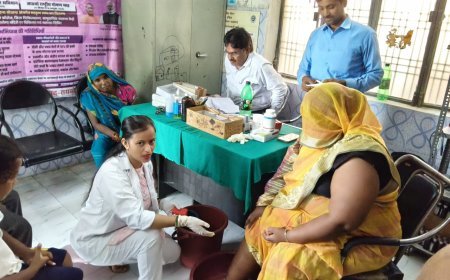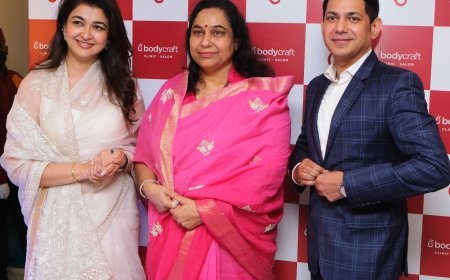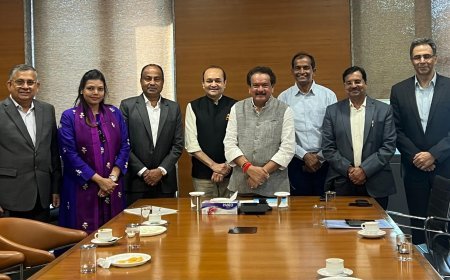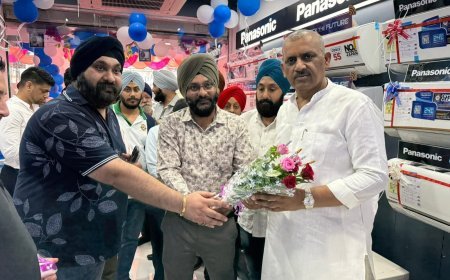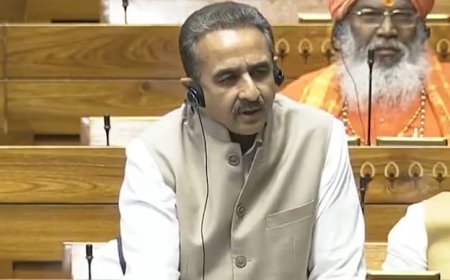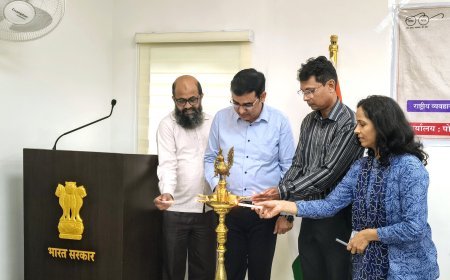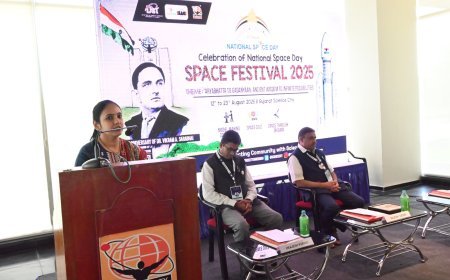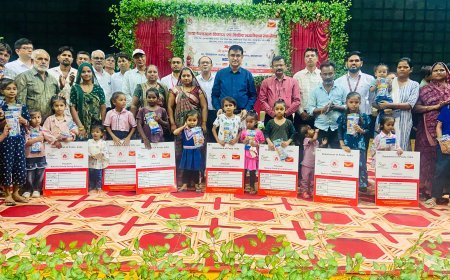India Show Jal Jeevan Mission as Global Model at UN SDG6 Meeting
India highlights Jal Jeevan Mission’s massive success at UN SDG6 event, emphasizing water access, equity, and local empowerment.

New York : India took the global stage at the United Nations by presenting its landmark Jal Jeevan Mission as a transformative initiative during the high-level meeting focused on Sustainable Development Goal 6 (SDG6) — clean water and sanitation for all by 2030. Representing India at the UN, Ambassador P. Harish strongly articulated India’s commitment to global water equity and sustainable access, while denouncing the politicization of water issues in global forums.
Organized with the support of the United Arab Emirates and Senegal, the event also laid the groundwork for the upcoming 2026 United Nations Water Conference. Ambassador Harish underscored India’s pledge for active participation in the 2026 summit and emphasized collaborative engagement over political maneuvering.
In his keynote address, Ambassador Harish highlighted that as the world’s largest democracy and home to over 1.4 billion people, India views access to safe drinking water and sanitation not just as a basic human right but as a fundamental enabler of public health, gender equality, and inclusive economic development.
He elaborated on India's journey towards water accessibility and sanitation reforms through empowering local governance. "India has made transformative strides by strengthening village-level institutions to manage water supply and sanitation systems. Local bodies have been equipped to ensure sustainable management and accountability," he noted.
At the center of India’s success story is the Jal Jeevan Mission, launched in 2019 with the aim of providing piped drinking water to every rural household. Within just five years, the mission has increased rural tap water coverage from a mere 17% in 2019 to over 80% by 2024. More than 150 million rural households now enjoy regular access to piped water — a milestone achieved in record time.
“This has significantly improved health outcomes and reduced the physical burden on women and girls, who traditionally bear the responsibility of fetching water. It has also positively impacted school attendance among girls,” Ambassador Harish said.
He further emphasized India’s intention to share its experiences and best practices with partner nations. “Globally, India continues to collaborate with other countries to improve water and sanitation services, ensuring knowledge sharing and capacity building.”
SDG6 remains a critical component of the UN’s 2030 Agenda for Sustainable Development. It focuses on universal access to clean water and sanitation, efficient water use, protecting water-related ecosystems, and promoting integrated water resource management.
India’s proactive and evidence-backed approach has positioned it as a global leader in grassroots-level water governance. The country’s example underlines the power of decentralized decision-making, political will, and community participation in achieving water security for all.
As the 2026 UN Water Conference approaches, India’s Jal Jeevan Mission stands out not only as a domestic triumph but also as a replicable model for other developing nations striving to meet their SDG6 targets.
What's Your Reaction?
 Like
0
Like
0
 Dislike
0
Dislike
0
 Love
0
Love
0
 Funny
0
Funny
0
 Angry
0
Angry
0
 Sad
0
Sad
0
 Wow
0
Wow
0

